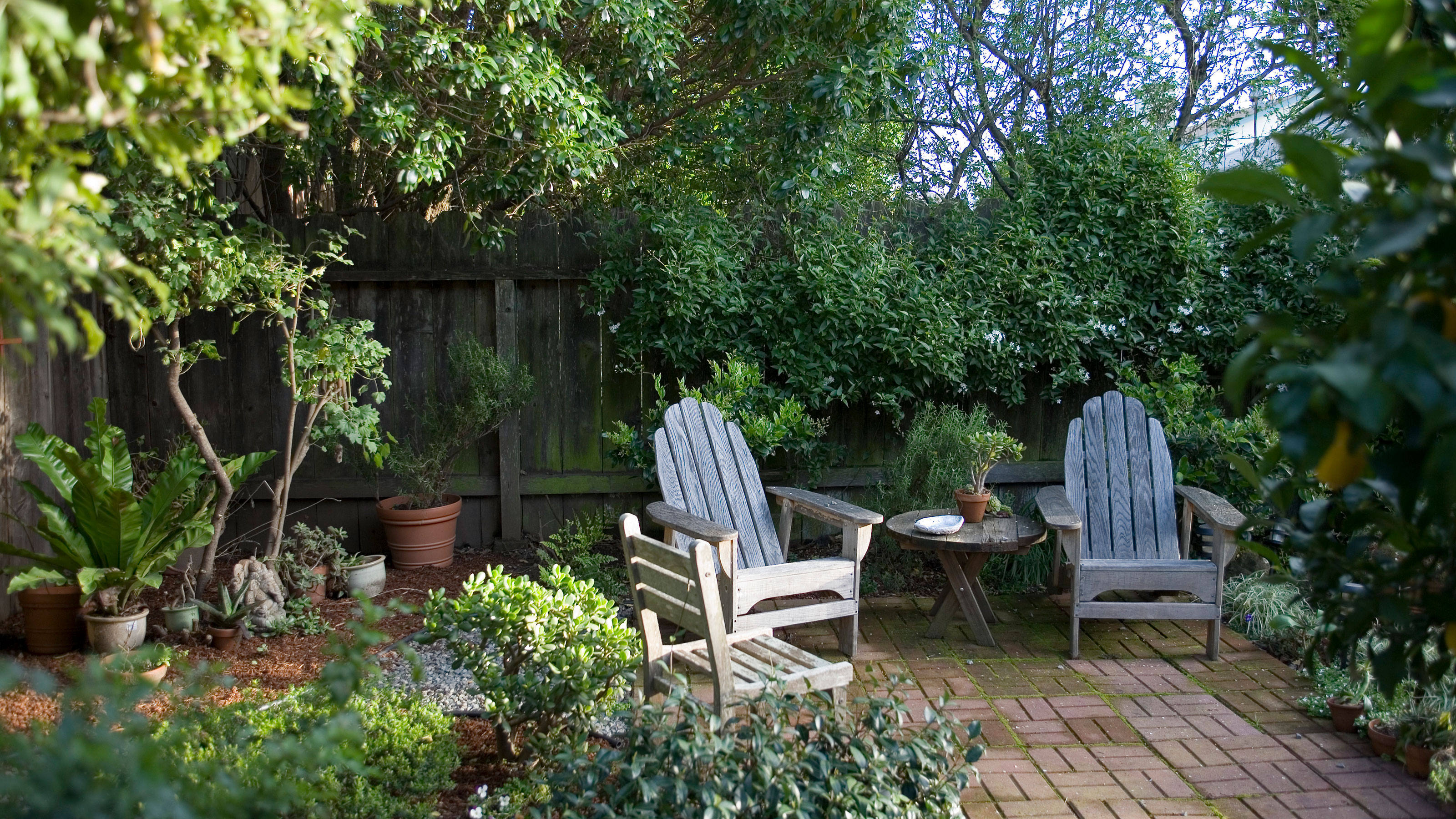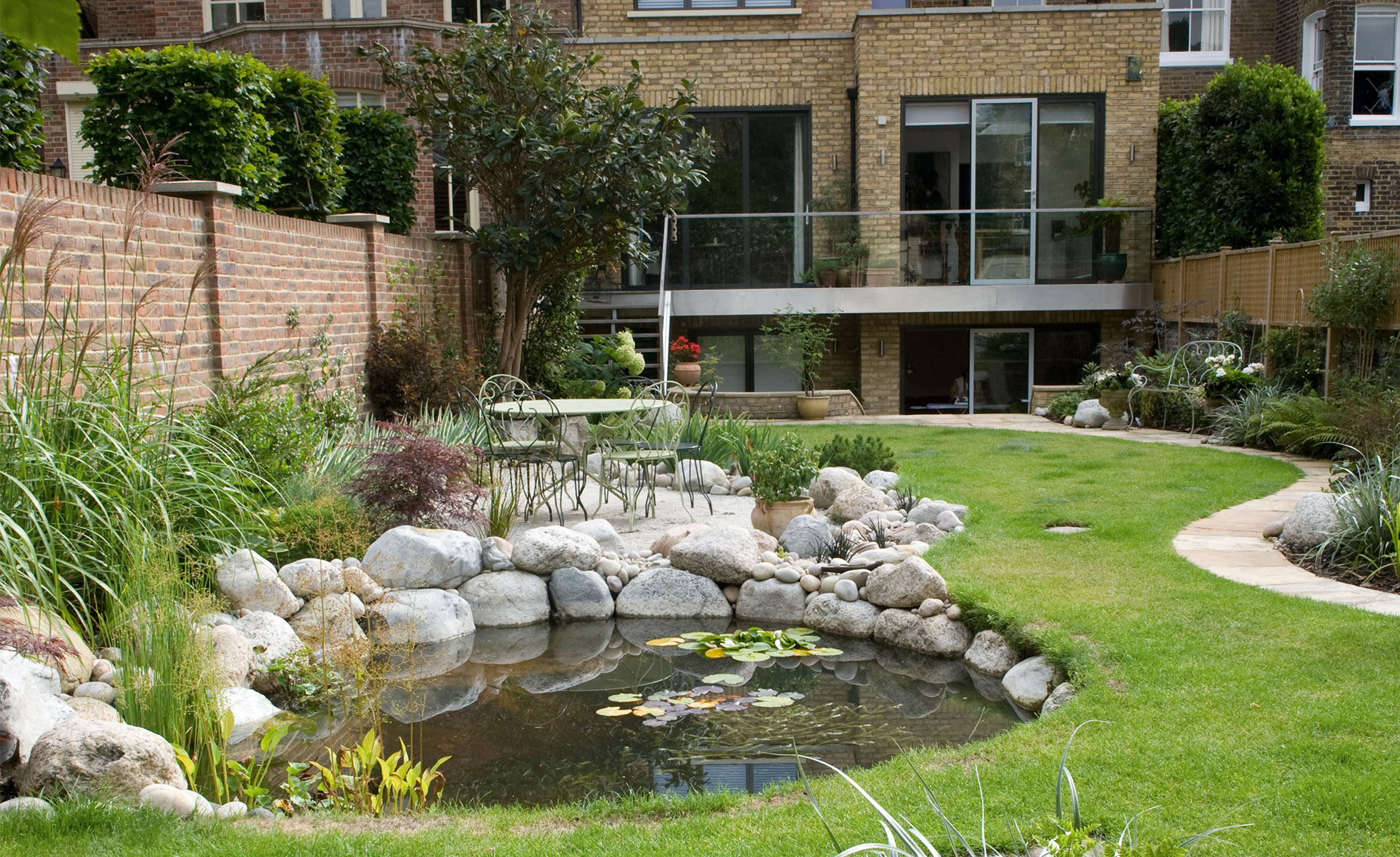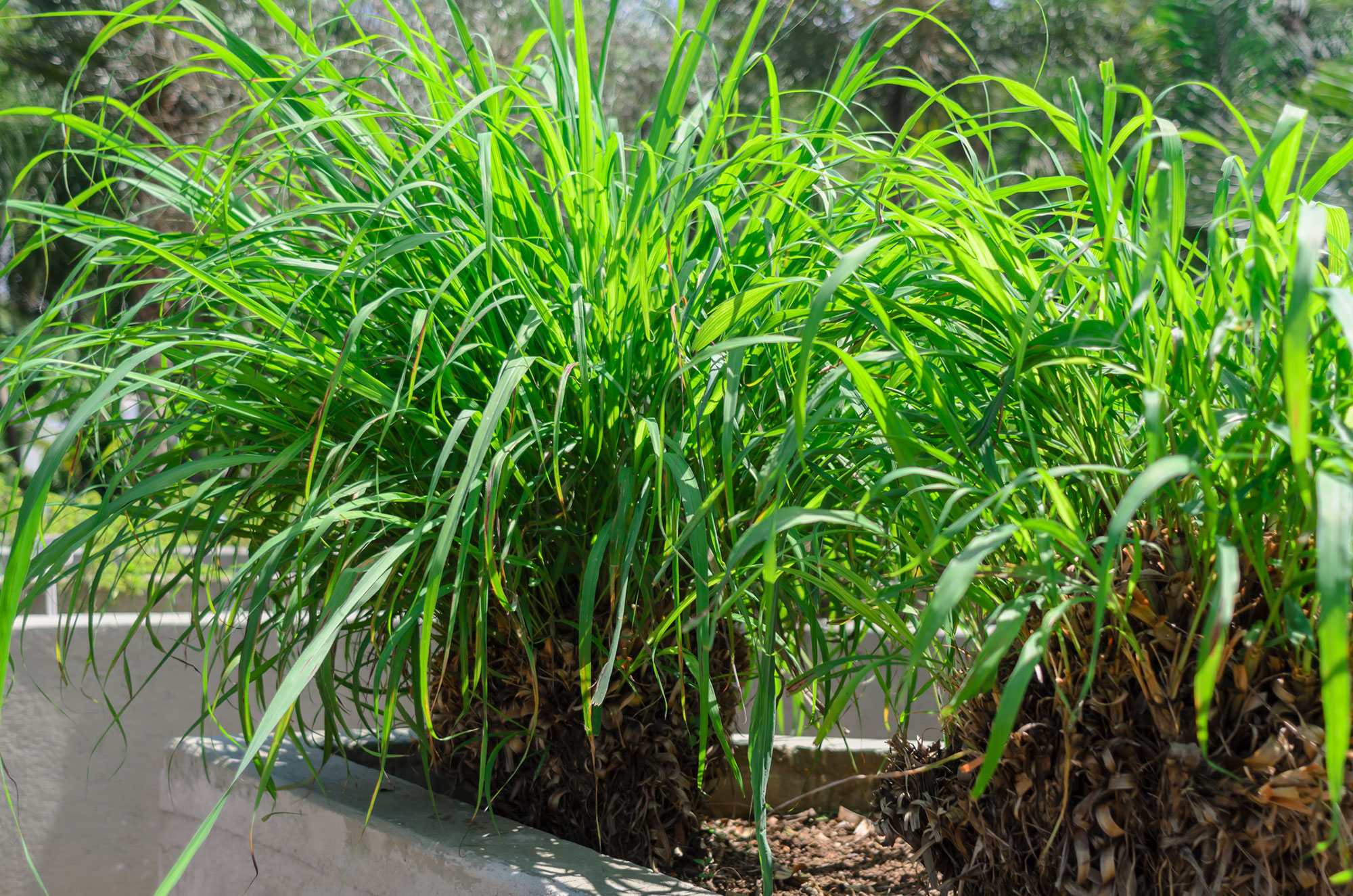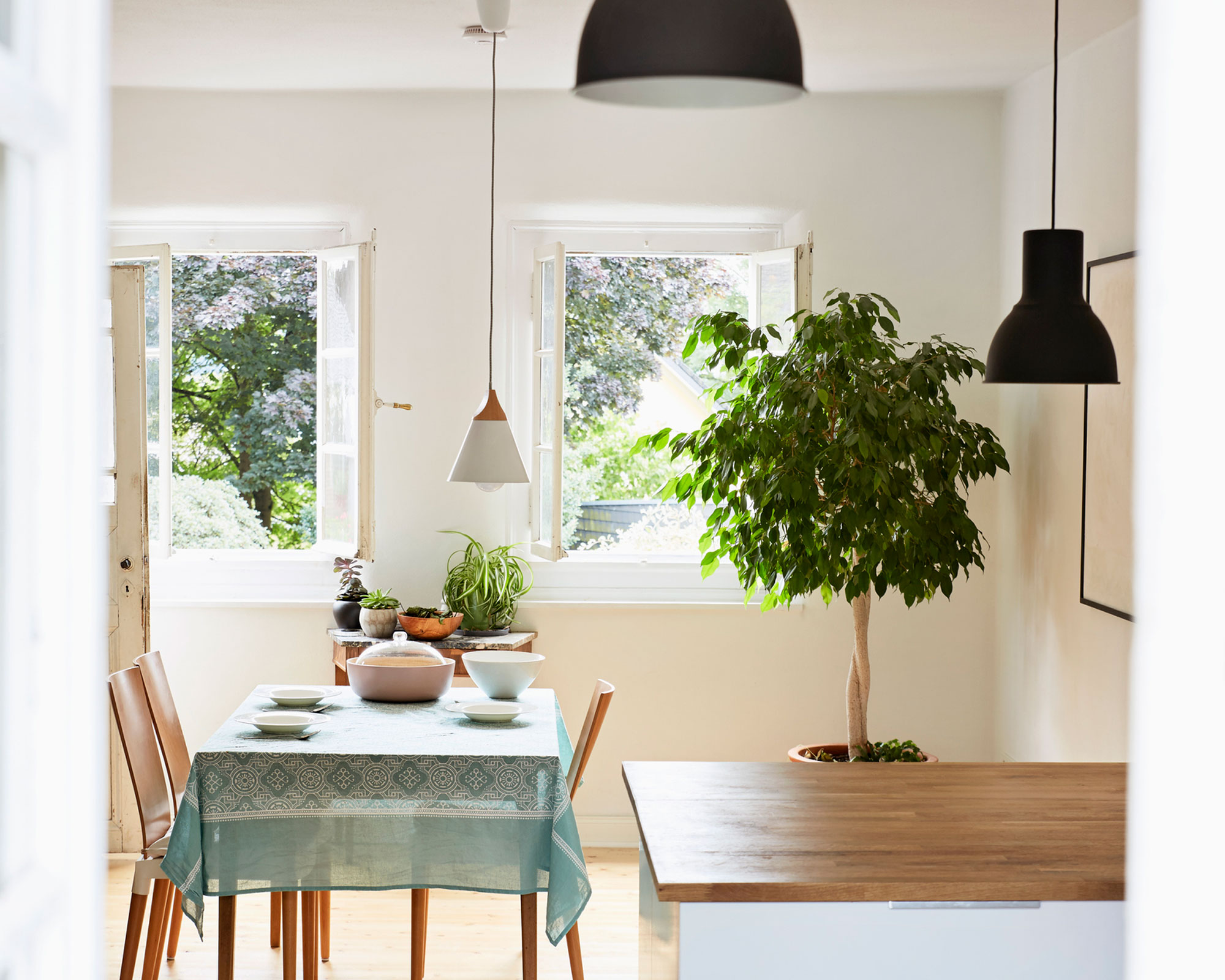How to get rid of mosquitoes in your yard and around the home
Learn how to get rid of mosquitoes in your yard and around the home using natural methods, planting tricks and more to avoid bites, all summer long


While warmer weather will see you inviting more friends and family over to spend time in the yard, they are not the only guests that might turn up. Knowing how to get rid of mosquitoes from your yard or inside space is crucial for the summer months as getting stung or even just hearing that piercing buzz can put a real dampener on alfresco living.
Although it can be tempting to pull out harsh deterrents like Deet to ward off mosquitoes for a quick fix, choosing a more natural approach to getting rid of these flying insects will introduce less chemicals into the atmosphere, keeping your yard, especially an eco-friendly haven for all types of wildlife – not to mention, people.
What attracts mosquitoes in the first instance, as with most insects you might find intruding on your home, is food sources and a hospitable environment in which they can quickly reproduce. Mosquitoes tend to eat algae and different fruit and plant nectars, and they want a damp and warm habitat where their eggs can comfortably hatch. This is why they appear in warmer climates and in the summertime. 'If mosquito eggs have ample water, they will hatch, releasing very hungry larvae!' says Rita Stadler, marketing supervisor, EarthKind. However, too much exposure to sunlight runs the risk of them dehydrating and dying, hence why you'll mostly be bothered by mosquitoes at home, in the evening.
As all insects do, mosquitoes play a key role in the ecosystem, and their eggs can actually be a food source for other animals. 'While they grow and develop in their larval stage, they feed on algae, bacteria, and organic material in the water. These little wrigglers – as they’re called – also serve as a food source for other aquatic species. Naturally, this means mosquito larvae thrive in bodies of water that lack hungry fish to gobble them up.'
Thankfully there are plenty of solutions using plants and the art of distraction, to naturally deter mosquitoes away from indoor and outdoor living spaces so that everyone can enjoy the summer months, without any nasty bites.
1. Remove stagnant water
So your garden pond, swimming pool or fountain could be the source of the problem. Mark Ashton, Product Manager at Burton McCall – the distributor of Thermacell in the UK – adds 'Stagnant water in gardens, such as a pond, tends to be the cause of most mosquito problems in the garden. Mosquitoes breed by laying eggs in stagnant water that is typically vegetated with algae. To prevent mosquitoes, it’s best to eliminate any stagnant water or clear ponds of algae regularly to prevent them from breeding.'
Don’t think you have any standing water? It could be in a blocked gutter on your house, an old bucket in the garden, a wheelbarrow that’s not tipped up for storage, old pots around the back of your shed, a watering can, and so on. Even the best inflatable hot tub can be a cozy place to lay eggs, so be sure to drain these post garden party. Scour the outside of your home for all the possible sites and get rid of the standing water.
Get small space home decor ideas, celeb inspiration, DIY tips and more, straight to your inbox!
If you have a water butt to conserve rainwater, you don’t need to give up on it, but do make sure it has a well-fitting lid. Or if you can't find a lid to match the size of the rain barrel, there are drawstring mesh/net covers you can get on Amazon which you can tighten to the size of your container. This will also help to keep leaves and other debris out of your water.

There are also a couple of strategies you can use if your pond is a prime site for mosquitoes. The first is to improve the aeration and water flow of your pond by adding a pump (the AllPondSolutions CUP-305 - 2000L/H is Amazons' Choice) and a feature such as a fountain or a waterfall.
Secondly, camphor is also a great natural mosquito repellent that can be bought in various forms like camphor tablets (available from Amazon) which you can add to your garden pond.
2. Introduce natural predators
If your pond doesn't have fish in it, now’s the time to get some new pets. Goldfish and others eat mosquito larvae, so you’ll be feeding your fish and dealing with your mosquito problem too.
While fish will eat mosquito larvae, bats will eat adult mosquitoes. But how best to make your garden bat-friendly? You could invest in a bat box (available on Amazon) – or better several – for your plot.
The best place to position them is in sheltered sunny spots, and at least four to five meters above ground level. Make sure the boxes aren’t located where you or the cat will disturb the bats.
You could also add in flowers, climbers, shrubs and trees to create a wildlife garden that will encourage bats to your yard space. There’s plenty of choice, including honeysuckle, buddleia, lavender, sea holly, evening primrose, and tobacco plant, plus hawthorn, hazel, English oak and silver birch.
3. Grow repellant plants
There are plenty of outdoor mosquito repellant plants to grow on your patio, that will add design interest to your outdoor space also. These include lavender – which will also attract bats – basil, eucalyptus, citronella, marigolds, catnip and more.
Inside of the home, the best indoor plants to repel mosquitoes include rosemary (position it in the kitchen to for a quick garnish for lamb or G&Ts), basil, lemongrass, and catnip. You see, no one needs to know that you're actively trying to ward off mosquitoes – you'll merely look like a well-stocked chef!
If you own a cat, catnip (aka Nepeta cataria) is a smell that mosquitoes hate, but will be a dreamy addition to the home for your feline friend.
Whichever verdant variety you go for, the air-purifying benefits of plants mean that they'll help to draw out the carbon dioxide in the room. Which, if you've read above can deter these potentially-deadly insects.

4. Burn essential oils
Investing in a citronella candle for your patio table is a safe bet to fend off mosquitoes also. You can also try burning plant extracts in an essential oil diffuser or oil burner which will deter the critters from coming too close.
5. DIY a natural mosquito deterrent spray
A multifaceted approach will always work best when it comes to avoiding mosquito bites. Chris Bonnett, founder of GardeningExpress.co.uk notes how:
'You can actually make a mosquito repellent using essential oils. Of course they don’t last as long as chemical ones but they’re a great and cheaper alternative.
For this you’ll want to use witch hazel as your base ingredient and the reason being is that witch hazel doesn’t have a smell, so you can pair it with any essential oil you like. Combine around 80ml witch hazel with an equal amount of water, then put in around 2-3ml of your chosen essential oil.
Shake the bottle and there you have it - your own DIY essential oil mosquito repellent!'
DIY mosquito repellent spray
1. Witch hazel
2. Essential oil of choice like lavender
3. Water
4. Glass spray bottle – we bulk buy for DIY cleaning sprays and more

6. Screen off windows
Obvious, right? But the fact is that if it’s hot overnight you won’t want to prevent the intrusion of mosquitoes by keeping the windows shut. The solution is to fit insect screens to your windows that still allow you to open them.
Even if your windows are made from uPVC it is possible to get interior screens, including roll-down versions that you can move out of the way when you don’t need them.
For a budget solution, you could go for netting you can cut to size and stick it around the window. The Flyzzz self-adhesive window screen from Amazon is a super cheap solution that'll keep critters from coming in.
For doors, you might find that magnetic curtains might work. The lightweight EXTSUD Magnetic Screen Door, available on Amazon still allows fresh air to circulate but creates a barrier between these annoying bugs and you. What's more, there's no nailing or drilling required so they're super renter-friendly too.
7. Use fans indoors
Create a breeze and you can deter mosquitoes, which are apparently relatively weak fliers. A fan has another advantage: it’ll disperse the carbon dioxide you exhale and which attracts them.
Of course, we tend to be more conscious of mosquitoes nipping at us in the warmer so it makes sense to invest in the best fan well before summer (where they're likely to sell out!)
Fans are one way reduce the temperature, if you're wondering how to cool down a room fast and can be the secret to stopping mosquitoes from attacking you. This is because mosquitoes are attracted to certain pheromones in your sweat. So less perspiration means that you aren't the plat du jour.
8. Avoid strong scents
Getting rid of mosquitoes can be as simple as going clothes shopping. OK, now that we've got our attention, it's not that easy but hear us out. Since mosquitoes pick up on sweat and lactic acid, choose cool, loose-fitting garments to stop them from sucking your blood.
A simple outfit suggestion might include a cool cotton, long-sleeved shirt with linen pants. But before you finish the look with a spritz of your fave eau de toilettes, consider going without to ward off the bugs. Strong perfumes and floral scents can attract mosquitoes and other bugs.
Instead, Stay Away Picaridin Mosquitoes (available from Earthkind on Amazon) is a fragrance-free insect repellent that you can spray on your skin and go about enjoying your day.
'Stay Away® Mosquitoes is an EPA Registered repellent made with Picaridin, an ingredient recommended by the CDC.' says Stadler.
This repellent provides 14-hour effective prevention against mosquitoes and ticks. It masks your musk, making you invisible to these pests. It’s water-resistant, too, so you can wear it during all of your outdoor activities without worrying about reapplying.'
What is the quickest way to get rid of mosquitoes?
Trying a combination of the above methods should reduce mosquito numbers fairly significantly. If they are prolific in your area, Ashton recommends The Halo Mini Protector which 'effectively repels mosquitoes by creating a 20m2 zone of protection for you and your pets against mosquitoes, midges and other small flying insects. The heat-activated mats are saturated with a synthetic chemical called allethrin, which mimics the natural pesticide secreted by chrysanthemums. There’s no need to use smelly, harmful sprays or oily lotions. With no noise or scent, this compact, stylish device looks great on any patio. The device is designed to be easy to use, simply insert the heat-activated mat, a butane cartridge, and turn on!'
And if the mosquitoes are still making it through your defenses, think about getting a trap for the inside of your home. Some are heavy-duty affairs that aren’t the loveliest items plus they’re noisy, but we like the Adokey Indoor Mosquito Lamp because it’s pretty quiet, and doesn’t use chemicals to do away with the home invaders.
Still dealing with mosquitos and other nasties in your backyard? Finding out the plants that repel pests outdoors may also come in useful.

Sarah is a freelance journalist and editor writing for websites, national newspapers, and magazines. She’s spent most of her journalistic career specialising in homes – long enough to see fridges become smart, decorating fashions embrace both minimalism and maximalism, and interiors that blur the indoor/outdoor link become a must-have. She loves testing the latest home appliances, revealing the trends in furnishings and fittings for every room, and investigating the benefits, costs and practicalities of home improvement. It's no big surprise that she likes to put what she writes about into practice, and is a serial house revamper. For Realhomes.com, Sarah reviews coffee machines and vacuum cleaners, taking them through their paces at home to give us an honest, real life review and comparison of every model.
- Christina ChrysostomouFormer acting head ecommerce editor
- Camille Dubuis-WelchFormer Deputy Editor